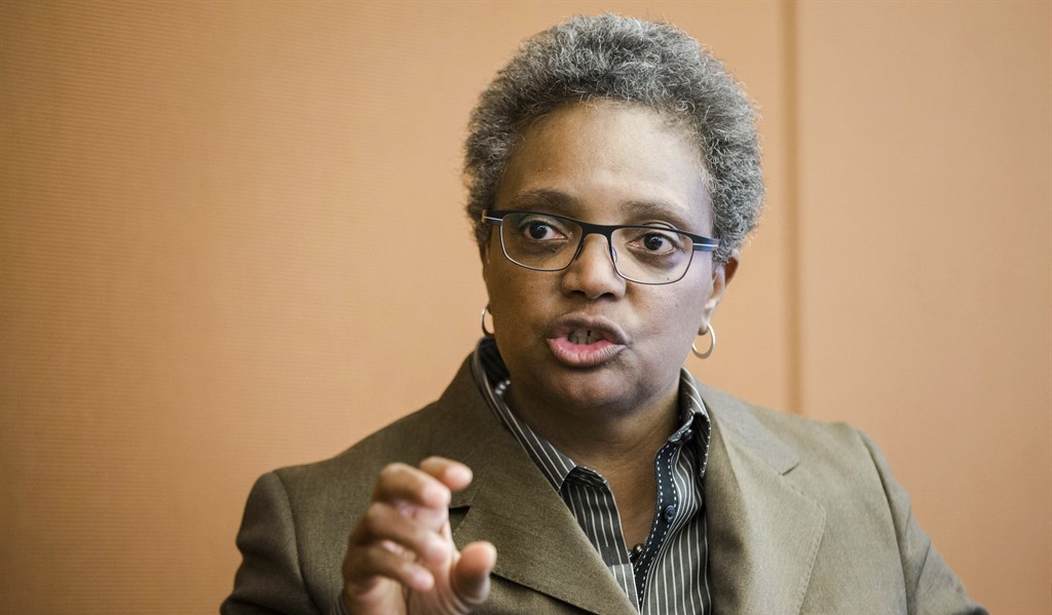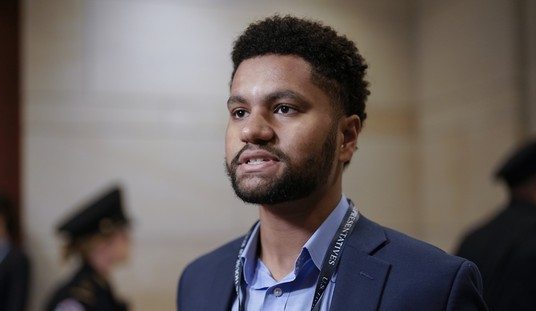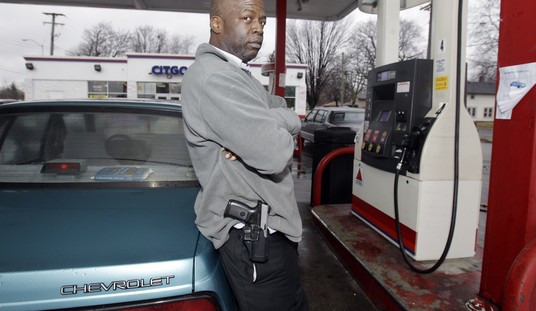Chicago Mayor Lori Lightfoot says she’s going to start treating violence as a public health crisis in Chicago, claiming that will help the city “dig down into the root causes of the violence”. The mayor went on to say:
“Previously we had a law enforcement first and only strategy and it wasn’t working. It’s not working when you talk about neighborhoods where the unemployment rate is 25% or higher. It’s not working when you think about the fact that in many communities, 90% or more of residents are depending on public assistance and where neighborhoods haven’t been invested in, where there’s no real legitimate economic activity.”
It’s absolutely untrue to say that Chicago has had a “law enforcement first and only strategy” in place. The Cure Violence program, for example, has operated in several Chicago neighborhoods since 2004 and claims to have seen reductions in shootings and homicides of 41% to 73% over the years. The controversial program deploys former gang members as “violence interrupters” in high-crime neighborhoods. The idea is that these individuals can talk to current gang members and get them to stop shooting one another without law enforcement’s involvement. Unfortunately, there’ve been several high profile arrests of Cure Violence leaders over the last few years, including Francisco Sanches, who was actually arrested for running one of the most violent gangs in Chicago while working for the anti-violence program. So, the mayor could say she’s not happy with the intervention strategies that have been put in place, but it’s just flat out wrong to say there haven’t been any non-law enforcement strategies in Chicago.
The mayor talks about the high unemployment and lack of job opportunities as drivers of violent crime, but it seems to me just as likely that it’s the other way around; businesses don’t want to move in to high crime neighborhoods when they could locate in a safer place a few miles or even a few blocks away. Do you reduce violent crime by bringing in jobs or do you bring in jobs by reducing violent crime?
The mayor seems to think that reducing violence is predicated on fixing the broken communities first, telling Now This News:
“We have to make sure that we are shoring up these neighborhoods by focusing on economic development, filling the wealth and opportunity gap, eliminating food, pharmacy, and health care deserts and all of those things that we take for granted as being important to a good quality of life. We need to make sure that those opportunities and resources are plentiful all across the city and not just in certain neighborhoods.”
I hate to say it, but I think Mayor Lightfoot has it backwards. Those communities that are plagued by violence can’t start to rebuild until the violence stops, and it’s not going to stop if a Starbucks or a Walgreens moves in to a corner location. Until the relatively few individuals driving the violence in these neighborhoods are dealt with, the violence they commit is going to continue.
Lightfoot appears unwilling to consider that argument. Instead, despite her disapproval of a “law enforcement strategy” to deal with street crime, she’s wholeheartedly embraced putting more gun control laws on the books, in Chicago and elsewhere.
“The fact that you can cross the border, go into Indiana and purchase military-grade weapons at any number with no background check is a terrible thing, not only for a city but look at the devastation that gun violence is wreaking every single day in our community.”
Unfortunately for Mayor Lightfoot, the facts tell a far different story than gang members driving into Indiana and loading up on “military-grade weapons”. As it turns out, twice as many guns recovered and traced in Chicago come from Illinois than Indiana. Indiana could ban gun sales tomorrow and it wouldn’t have much of an impact, if any, on the violence.
Lightfoot says the only way to make a difference is to have “federal laws in place that require background checks and strengthen the penalties for people who pick up guns and wreak havok in our community.”
In other words, Illinois’ gun control laws have failed at preventing violence in Chicago, so the answer must be federal gun laws instead. The mayor came closest to hitting the proverbial 10-ring when she mentioned “penalties for people who pick up guns and wreak havok” in the city. For years, the city’s bond system has been accused of serving as a revolving door for some of the city’s most violent criminals, though Chicago has recently undertaken reform of its bond system. Those (mostly) young men who have been in and out of courtrooms and jail cells are the key to reducing violence in Chicago. Help them turn their lives around and stop shooting, or take them off the streets. They’re the ones driving the violence, and ultimately they’re the ones that can stop it.









Join the conversation as a VIP Member